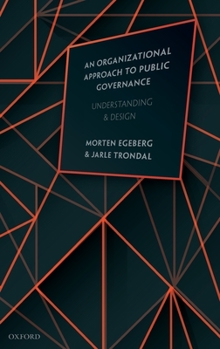Organizational Approach to Public Governance: Understanding and Design
Climate change, economic crises, migration, and terrorism are among the many problems that challenge public governance in modern societies. Many of these problems are spanning political and administrative units; horizontally, vertically, and both. This makes public governance particularly challenging and turbulent. Since public governance mainly takes place through public organizations, like international organizations, ministries, and regulatory agencies, this book examines what difference organizational factors make in the governance process. The volume launches a general organizational approach to public governance. It outlines key theoretical dimensions that cut across governance structures and processes horizontally as well as vertically, thus paving the way for integrating separate empirical analyses into a coherent theoretical whole. Moreover, the organizational (independent) variables outlined in this book represent classical dimensions in the organization literature that are generic in character. This allows for generalizations across time and space. The volume also examines (organizational) design implications: By building systematic knowledge on how organizational factors shape governance processes on the one hand, and how organizational factors themselves might be deliberately changed on the other, the book offers a knowledge base for organizational design.
Format:Hardcover
Language:English
ISBN:0198825072
ISBN13:9780198825074
Release Date:December 2018
Publisher:Oxford University Press, USA
Length:192 Pages
Weight:1.05 lbs.
Dimensions:0.8" x 6.4" x 9.3"
Customer Reviews
0 rating





